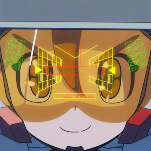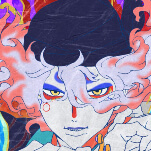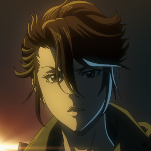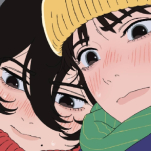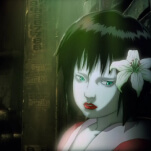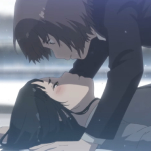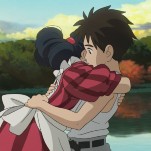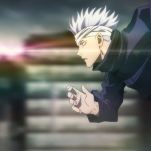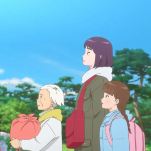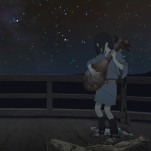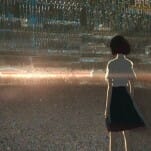Maboroshi Captures the Pain of Messy Memories and Endless Adolescence
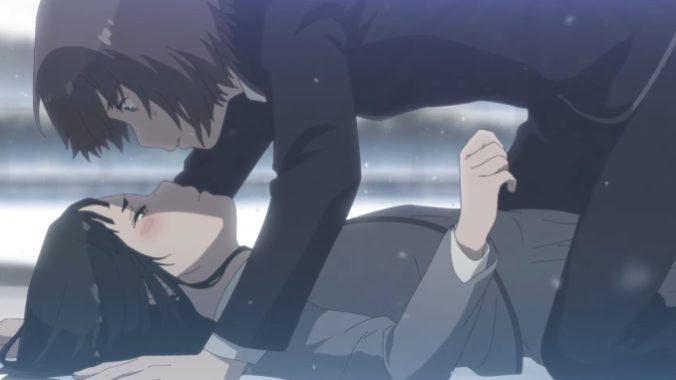
We all have those memories that, for better or worse, we can’t seem to get rid of. Formative experiences that are coarse and awkward but end up continually shaping us, laying dormant until a sudden association jostles them to the forefront. While some may be definitively good or bad, many more inhabit a strange middle ground between the two, moments that can be looked back upon with a mixture of nostalgia, regret, longing and relief that they’re finally over with. Maboroshi, an animated film from prolific writer/director Mari Okada (Maquia: When the Promised Flower Blooms, O Maidens in Your Savage Season, Toradora, Hanasaku Iroha) and the equally busy studio MAPPA (Jujutsu Kaisen, Attack on Titan, Vinland Saga), literalizes these types of inescapable recollections.
Through its deeply flawed cast and Peter Pan-esque world caught in stasis, Maboroshi communicates the suffocation and silver linings of being trapped within a particular point in time. Part elegy and part celebration of the past, it makes for an evocative, unusual ghost tale.
The story begins when Masamune (Junya Enoki), a 14-year-old living in Mifune, Japan, witnesses an explosion at the local factory. But this isn’t any normal accident. The boom seems to rip their town from the very fabric of time, trapping its denizens in an endless limbo where the seasons never change and no one grows older. Some believe this a punishment handed down by the god of a nearby mountain, which has been mined for generations, but definitive answers are difficult to come by.
Meanwhile, Masamune deals with conflicting feelings over a girl in his class, Mitsumi (Reina Ueda), who despite seeming to despise him, brings him in on a secret. Together, the pair take care of a child, Itsumi (Misaki Kuno), who is locked away in the factory for an unknown reason that seems tied to the mysteries of this place. As cracks in reality become increasingly common, Masamune and Mitsumi are forced to face truths that threaten their frozen world.
Over the years, Okada has made a name for herself by penning countless complex characters, many of whom are angsty, hot-mess teenagers in the process of not-so-gracefully coming of age. That proud tradition continues with Maboroshi, resulting in a cast of thorny and unlikable adolescents who do just about everything in their power to feel anything in this numbing place detached from time. Although many will find it off-putting to be in such close proximity to initially unpleasant people, there is a refreshing frankness to their imperfections that’s true to what growing up can be like.
There is something genuine in their ennui, which is further exacerbated by these circumstances. In a very literal sense, no one can leave, conveying what it’s like to be trapped in the confines of your hometown, stuck in an unchanging loop. Masamune and his friends come up with painful games and trials to jostle themselves from these humdrum rhythms, but the town’s initial collective effort to avoid change, to smooth the transition for when they presumably become unstuck someday, makes it difficult to avoid being pulled in by this placidity.
-

-

-

-

-

-

-

-

-

-

-

-

-

-

-

-

-

-

-

-

-

-

-

-

-

-

-

-

-

-

-

-

-

-

-

-

-

-

-

-


